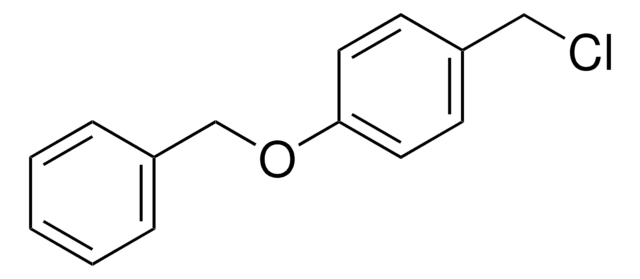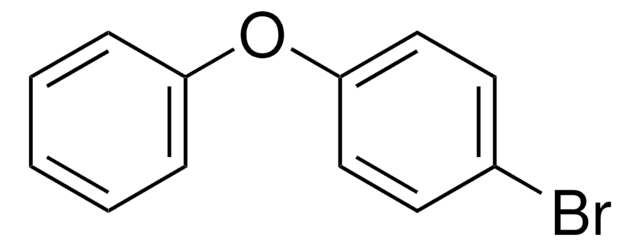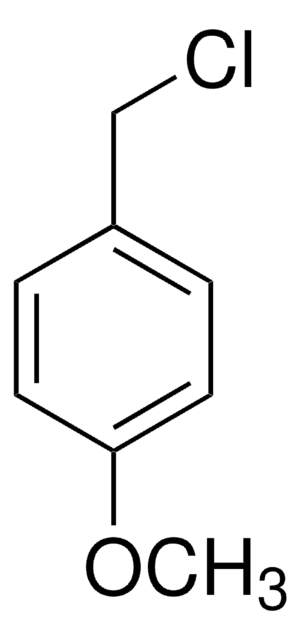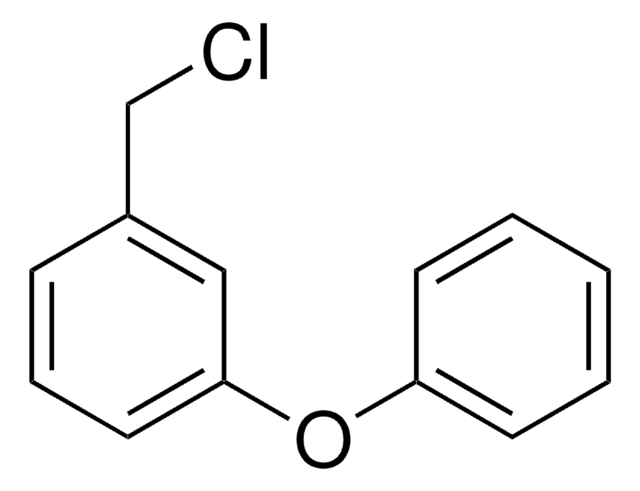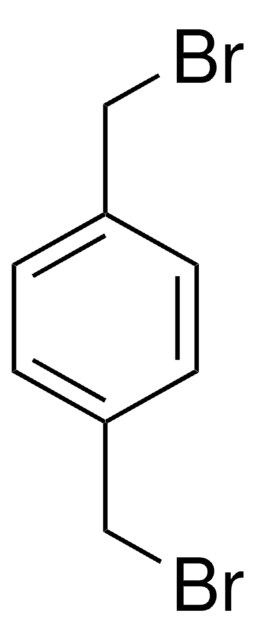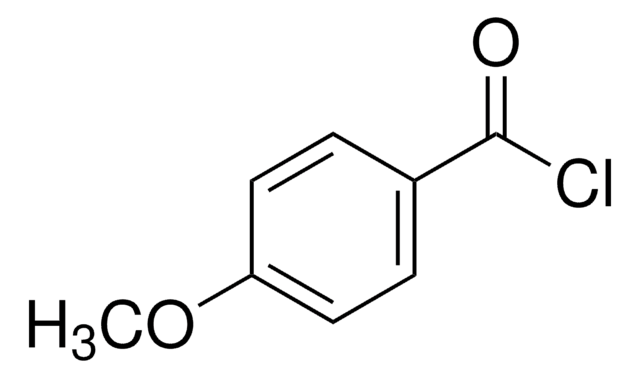432881
4-(Chloromethyl)phenyl acetate
98%
Synonym(s):
α-Chloro-p-cresol acetate, 4-Acetoxybenzyl chloride, p-(Chloromethyl)phenyl acetate, p-Acetoxybenzyl chloride
About This Item
Recommended Products
Assay
98%
form
liquid
refractive index
n20/D 1.53 (lit.)
bp
240 °C (lit.)
density
1.201 g/mL at 25 °C (lit.)
functional group
chloro
ester
SMILES string
CC(=O)Oc1ccc(CCl)cc1
InChI
1S/C9H9ClO2/c1-7(11)12-9-4-2-8(6-10)3-5-9/h2-5H,6H2,1H3
InChI key
OKRCXSCDWKJWSW-UHFFFAOYSA-N
Application
Signal Word
Danger
Hazard Statements
Precautionary Statements
Hazard Classifications
Acute Tox. 4 Oral - Skin Corr. 1B - Skin Sens. 1
Storage Class Code
8A - Combustible corrosive hazardous materials
WGK
WGK 3
Flash Point(F)
235.4 °F - closed cup
Flash Point(C)
113 °C - closed cup
Personal Protective Equipment
Choose from one of the most recent versions:
Certificates of Analysis (COA)
Don't see the Right Version?
If you require a particular version, you can look up a specific certificate by the Lot or Batch number.
Already Own This Product?
Find documentation for the products that you have recently purchased in the Document Library.
Our team of scientists has experience in all areas of research including Life Science, Material Science, Chemical Synthesis, Chromatography, Analytical and many others.
Contact Technical Service